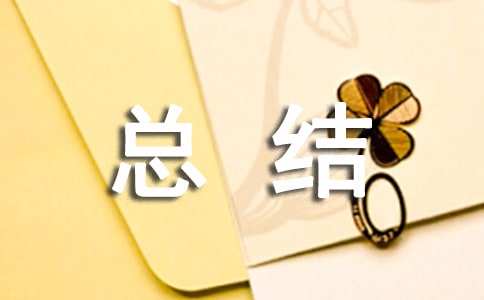篇一:沪教版五年级上册英语语法知识点
Module4ThenaturalworldUnit1FireVocabulary:禁止吸烟禁止篝火玩耍不要玩弄火柴Sentences:S1:Forfiresafety,whatmustn"twedo?S2:Wemustn"t...Wemustn"tsmoke.Wemustn"tplaywithmatches.Wemustn"tplaynearfires.Wemustn"tstartcampfires【考考你】For__safety,whatmustn"twedo?A.fire不要在火边
篇二:沪教版五年级上册英语语法知识点
沪教英语五年级上册知识点整理班级___________姓名____________学号____________I.同音字1.沪教英语五年级上10.hi/high11.dear/deer册知识点整理12.where/wear2.I/eye13.some/sum3.write/right14.four/for4.know/no15.flower/flour5.meet/meat16.our/hour6.here/hear17.pair/pear7.buy/bye/by18.week/weak8.sun/son19.their/there9.see/sea/C20.aunt/aren’tII.沪教英语五年级上册知识点整理1.沪教英语五年级上14.red,read(过去式)15.kite,cat册知识点整理16.month,mouth,mouse,2.night,right,fight,lightmice3.cut,but,shut,bud17.big,pig,pink4.your,you,you’re18.hold,old,cold5.clean,close,clothes19.ant,and,end6.hand,head,hard20.rubber,rabbit,rubbish7.bad,bed21.now,new8.some,son,sun,22.books,box9.☆blue,balloon,23.thin,thing,singblow,bowl,bow24.☆white,write,ride10.here,hear,hair25.there,where11.three,tree26.green,grey12.tall,ball,tail,four,hall27.☆work,walk13.swim,swing,sing28.twelve,twelfth,twenty1/1221.eye/I22.B/be/bee23.whose/who"s24.eight/ate25.red/read(过去式)26.tale/tail27.weight/wait28.weigh/way29.why/y29.every,very30.well,will31.laugh,love32.guess,guest33.feel,fell34.thirsty,thirty,thirteen35.full,fall.36.dive,drive37.parent,present38.shirt,short,shorts39.sharp,shark,shall40.count/can’t41.7:15/7:45/8:1542.off/of43.☆quiet/quite44.round/loud/cloud
45.path/pass/past46.foot/food/fruit47.there/their/they48.sleepy/asleep’re49.cross/across50.different/difficult沪教英语五年级上册知识点整理沪教英语五年级上册知识点整理2.open---close3.turnon----turnoff4.old---new/young5.thin----fat/hick6.full----hungry/empty7.short----tall/long8.man-woman9.boy---girl10.white---black11.small----big12.here----there13.warm----cool14.hot----cold15.happy----sad/unhappy16.on----under17.this----that(these--those)18.dirty/untidy---clean/tidy19.sharp—blunt20.☆easy-difficult/hard21.☆thesame—different22.fast—slow/slowly23.top—bottom24.out—in25.high—low26.busy—free27.beautiful/pretty—-ugly28.strong—weak29.brave-afraid/shy/scared30.early-late31.heavy--light32.getup---go33.hate---love/like34.lucky---unlucky35.luckily---unluckily36.strongly---gently37.both---neither38.all---none39.too---either40.east---west41.south---northtobed42.many---few43.much---little44.puton---takeoff45.☆safe---dangerous46.careful---careless47.finally---first48.begin/start---end/finish49.☆bring---take50.always---never51.push-pull52.smart-silly/foolish/stupid53.left---right54.correct/right—wrong55.near---faraway56.getoff---geton57.leave---stay58.sell---buy59.below---above60.getin----getoutof沪教英语五年级上册知识点整理A.复数1.以s,x,sh,ch,结尾的单词;加es:1.bus---buses,2.box---boxes3.fox---foxes4.peach---peaches,5.branch---branches2.以辅音字母加y结尾的单词;去y变成ies:2/121.baby---babies2.library---libraries3.以f或fe结尾的单词;去1.leaf---leaves2.wolf----wolves4.不规则变化:1.mouse----mice5.以o结尾的单词有生命的radios6.不可数名词没有复数形式3.butterfly---butterfliesf或fe;变ves:3.knife----knives4.scarf---scarves4.deer---deer2.sheep---sheep3.fish---fish+es,无生命的+s;A:potatoes,tomatoes,mangoes,heroes,B:photos,pianos,.单词后不能加s;前面也不能加a、an如paper,water,milk,jam,hair等B.形容词、副词比较级的变化规则(1)一般在形容词或副词后面直接加–er变为比较级;加–est变为最高级.如:old—olderhigh—higher(2)以重读闭音节结尾;且末尾只有一个辅音字母的;则双写最后一个辅音字母;再加级;加–est变为最高级.如:big—biggerthin—thinner(3)以“辅音字母+y”结尾的单词;则将改y为i再加-er变为比较级;加–est变为最高级.如:-er变为比较busy—busierheavy—heavier(4)以字母e结尾的单词;直接加–r变为比较级;加–st变为最高级.如:large—largerfree—freer(5)多音节以及某些双音节形容词或副词变为比较级或最高级时;加most变为最高级.如:important—moreimportant不规则的比较级good/well—betterlittle—lessbad/ill—worseold—older/eldermany—morefar—farther/furtherdifficult—moredifficultuseful—moreuseful则通常在其前加more变为比较级;C.基数词;序数词和日期表达1stfirst9thninthth☆44forty-fourth2ndsecond☆12thtwelfthth☆99ninety-ninth3rdthird20thtwentiethth100onehundredth(序数词前要加the)5thfifth21sttwenty-firstst101onehundredandfirst5月1日:Maythefirst/thefirstofMayD.形容词转化为副词1.副词变化a.直接+ly:quick----quicklystrong----stronglyslow---slowlysafe---safelycareful---carefullybeautiful---beautifullysoft---softly3/12b.y结尾;变为ily:thirsty---thirstilyheavy---heavilyhungry---hungrilyhappy---happilybusy---busilylucky---luckilyc.去e+lygentle---gently2.注意事项:副词通常用来修饰动词或形容词Eg:Inwinter,thewindblowsstrongly.其中strongly是用来修饰动词blow的.其中beautifully是用来修Mysisterisgoodatsinging.Shecansingbeautifully.饰动词sing的.注:有些特殊的动词不能使用副词;而要使用形容词:动词smell,taste,sound,feel,touch)(表示变化Eg:Thewindisstronginwinter.这个句子中的动词是is因此只能使用形容词strong.句子中的动词turn表示变化;因此只能Inautumn,theleavesturnyellowandgreen.使用形容词red和yellow.V.字母的发音规律(am,is,are,was,were)(感官/ei/a/?//a://?//i://e//a?//i//??//?//ju://?//a://?://u://u//?:/cake,table,plate,Jane,make,face,take,makejam,hand,fat,bad,sad,has,rabbit,ant,apple,cat,man,grass,glass,father,pass,fast,class,ask,bathroomWant,watch,whathe,she,me,we,Peter,Eva,Chinese,Japanesepen,ten,red,seven,Ken,yellow,henkite,like,bicycle,Mike,nicepig,big,pink,his,with,stick,chick,is,Jim,hold,photo,old,rose,open,goBonnie,dog,hot,shop,box,orange,office;songpupil,tube,music,tuneduck,Russ,run,sun,up,summercar,park,garden,large,sharp,start,Marchquarter,warmblue,glueschool,moon,too,noodles,good,cook,foot,look,book,wood,woof,took,shookbird,first,third,thirsty,thirty,girl,4/12eiouar特殊arueoo特殊ooir
urer特殊尾)er(词/?//i://e//ei//i?//e?//i?//e?//?//a?//i://??//?//?//??//a??//au//?u//?//e?/purple,nursenerve,nervous,serve,service,herquarter,teacher,waiteree/e-eea特殊eabee,meet,sleep,week,these,Chinese,Japanesepea,meat,weak,seahead,bread,sweater,weather,breakfastbreak,great,steakdeer,beer,cheer,ear,hear,near,dear,tearpear,bear,wearherewherewereBike,kite,pipe,time,like,pineapple,bitepie,tie,die,liepiece,thief,fieldtoe,hoe,foecoat,goat,boat,go,old,those,nose,hole,post,poster,noticenot,hot,stop,modelson,mother,brotherboy,toy,joyoil,noise,noisy,voiceviolinloud,round,found,count,mouse,mouthhow,now,cow,owlblow,grow,bowl,knowcountry,touch,roughhay,play,graysail,nail,tail,rain,painteerear特殊ear易混淆ere-i-ie特殊ieoeoao/-o-特殊ooyoi特殊ioouow特殊ow特殊ouayaich常考辅音及辅音连缀/t?//k/chicken,children,cheeseChristmas,chemical(化学的)5/12bkcgsnth/b/////k/////k//s//g//d?//s//z//n//?//θ//e/bird,basketCkitchen,kick,cakeknock,knife,knight(骑士)cake,Canadanice,price,niecegirl,good,groundgiraffe,orange,fridgesister,smile,rise,noise,noisynose,thinThink,thank,thing,sing,(n在k或g的前面)thin,think,than,Maths,monththis,that,these,those,with,smoothVI.人称代词和物主代词人称代词(主格)单数复数第一人称Iwe第二人称youyou第三人称he,she,itthey第三人称him,her,itthem人称代词(宾格)第一人称第二人称单数meyou复数usyou注:动宾giveme,letus,sendhim…介宾aboutyou,apictureofher,playwiththem…物主代词(形容词性)单数复数第一人称myour第二人称youryour第三人称his,her,itstheir☆☆☆(重要!背熟!)主格(人称代词)宾格第一人称单数I二单you三单he三单she三单it第一人称复数we二复you三复theymeyouhimheritusyouthem形容词性物主代词(所有格)myyourhisheritsouryourtheir名词性物主代词mineyourshishersitsoursyourstheirs反身代词myselfyourselfhimselfherselfitselfourselvesyourselvesthemselvesVII.固定搭配和语法要点1.liketodoeg,Iliketoswimthisafternoon.wouldliketodoeg:wouldliketodo相当于wanttodo;其后不能加doinglikedoingeg,Ilikeswimminginthesea.6/122.hatetodoeg,Moststudentshatetodoanyoftheirhomeworkhatedoingeg:Ihatetypingletters.It’sboring.3.letsbdostheg,Letthemcleantheclassroom.letsbgodoingsth.Letthemgosinging.4.wanttodosth.eg,Theprincesswantstobuyaprettydresswanttobeeg,Shewantstobeacook.wantstheg,Hewantedapples.5.like+可数名词(复数)eg,Welikebeautifulflowers.like+不可数名词(单数)eg,Theylikedrinkingwater.6.beafraidofstheg,Theyareafraidofspidersbeafraidofdoingstheg,Shewasafraidofwatchinghorrormovies.beafraidtodosth..eg,I’mafraidtowalkthere,it’stoohigh.7.BegoodatsthBegoodatdoingsth.8.different/count/Howmany/two…/like+可数名词(复数)9.some+可数名词(复数)eg,Shehassomepotatoesinthekitchen.some在一般疑问句和否定句转换成anyMayIhavesome…?在希望得到对方肯定回答时some不用变同理:Wouldyoulikesome…?DOyouwantsome…?10.Can,could,may,might,oughtto,must,will,wouldshall,should+动词原形11.助动词do,don’t;does,doesn’t;did,didn’t+动词原形12.Will,begoingto+动词原形13.Makesbdosth.Letsb.dosth.14.therebe就近原则15.修饰something,anything,nothing的形容词应该放在此类词后;叫做形容词后置如:Herfatherwon’tletherdoanythinginteresting.Somethingdangerous,nothingfun16.What’sthis/that?用It’s…回答.Whatarethese/those?用They’re…回答.17.球类名词前零冠词.Playfootball,playbasketball.三餐前零冠词havebreakfast/lunch/dinner/supper季节前零冠词inspring/summer/autumn/winter西洋乐器前一定要加冠词the,playthepiano,playtheviolin.江河湖海和山脉前要加the,theYangtzeRiver,theWestLake,theYellowMountain18.Intheeast/south/west/north19.onthefarm,onthetree长树上,inthetree挂树上20.befullofsth装满;充满某物Theparkisfullofpeople.Thosebasketsarefulloffood.(动词看主语)7/1221.feed…with…MotherDuckfeedsherbabywithsomeworms.staywithsb.playwithsb.22.drivesb.away23.☆theSpringFestival,Children’sDay,NationalDay以festival结尾的节日加the,以day结尾的不加the☆…Festival的节日前介词用at,…Day的节日介词用one.g.attheMid-autumnFestival,onChildren’sDay24.☆Inthemorning泛指在早晨用in;在某一个特指的早晨用on:onasunnymorning25.Intheschool在学校atschool上课26.belateforschoolacarnation/presentforyou27.excitingadj.(游戏、比赛等)令人刺激的Thegameisexciting.Excited.Adj.感到刺激的Ifeelsoexcited.28.Thepairofshoesisnice.动词用什么形式取决于量词结构.Thebigbottlesofjuicearecheap.29.Asksb.(not)todosth让某人(别)做某事Tellsb(not)todosth告诉某人(别)做某事30.☆☆☆1Igotoschoolonfoot.=Iwalktoschool.2Igotoschoolbybike.=Irideabiketoschool.3IgotoHongKongbyplane/air.=ItakeaplanetoHongKong.=IflytoHongKong.4Igotothecinemabytaxi/bus/underground/…=Itakea/antaxi/bus/underground/…tothecinema.31.finishdoingsthenjoydoingsth.32.arriveinBeijing(大地方);arriveattheswimmingpool(小地方)reachBeijing(reach后直接跟地点)33.☆☆问职业的两种方法:Whatisyourfather?Whatdoesyourfatherdo?Whatareyou?Whatdoyoudo?34.☆☆问感觉的两种方法:Howdoesthedeskfeel?Howisthedesk?Howdoyoufeel?Howareyou?35.☆☆问价格的两种方法:Howmucharethepotatoes?Howmuchdothepotatoescost?Howmuchisthefish?Howmuchdoesthefishcost?36.问频率(once;twice,threetimes,always,usually,often,sometimes,seldom,never)Howoften…/Howmanytimes…Howoftendoyougotothecinema?Howmanytimesamonthdoyouvisityourgrandparents?37.Onone’swayhome;onone’swaytoschool在某人回家、上学的路上OnKitty’swayhome,shemetabigbadwolf.Ontheirwaytoschool,theyhelpedanoldladycrossthe8/1238.39.40.41.road.Helpsbdosth=helpsb.todosth.帮助某人做某事helpsb.withsth在什么方面帮助某人:SunnyhelpsAllenwithhisEnglish.☆☆Ittakessb.Sometimetodosth.花某人多少时间做某事;用it做形式主语.IttookSandytwohourstodohishomework.☆☆Sb.Spendsometime
onsth.某人花费多少时间在某事上e.g.Markspentoneandhalfanhouronhomeworklastweekends.Mark上周末花了一个半小时在作业上.☆☆Sb.Spendsometime
indoingsth.某人花费多少时间做某事e.g.Markspentoneandhalfanhourindoinghomeworklastweekends.Mark上周末花了一个半小时做作业.VIII.改变句型五种句子类型1、Tobe(am,is,are/was,were)2、Therebe(thereis/was,thereare/were)3、含有can,maymust,should,will等情态动词的句型4、Tohave(have,has,had)5、Todo(do原型,does单三,did过去式)四种时态一般现在时:表示通常性、规律性、习惯性的状态或者动作(有时间规律发生的事件)的一种时间状态Weusuallygotoschoolat7:30.JacklikesChinesefoodverymuch.在句子中看到以下标志性词;通常使用一般现在时:everyday/week/year;often/always/usually/sometimes/never;onSundays现在进行时:现在进行时表示现在或现阶段正在进行或发生的动作或存在的状态Wearewaitingforyou.Listen!SheissinginganEnglishsong.在句子中看到以下标志性词;通常使用现在进行时:isyourfather?---He’swashinghiscarinthegarden.一般过去时:一般过去时表示过去某个时间里发生的动作或状态;过去习惯性、经常性的动作、行为;过去主语9/12look/listen/now;it’s8:00;对话状态;如---Where..
所具备的能力和性格Iwaslateyesterday..基本结构:主语+动词过去式+其他;Mr.Smithboughtanewcarlastweek.在句子中看到以下标志性词;通常使用一般过去时:yesterday;justnow;tenminutes/fiveyearsago;lastnight/week/year;thismorning…一般将来时:一般将来时表示将来某一时刻的动作或状态;来的时间状语连用般将来时由助动词称;一律用will.TheywillgoforasummercampnextSunday.WillPeterdohishomeworkatonce.Myfamilywon’tgotoBeijingtomorrow.或将来某一段时间内经常的动作或状态.常常和表示将.如:tomorrow(明天);nextweek(下周);inthefuture(将来)(立刻)等.一shall(第一人称);will(第二、三人称)动词原形构成.美式英语则不管什么人反意疑问句和选择疑问句:反义疑问句表示提问人的看法;没有把握;需要对方证实.反义疑问句由两部分组成:.前一部分是一个陈述句;后一部分是一个简短的疑问句;两部分的人称时态应保持一致Helooksunhappy,doesn’the?Theyworkhard,don’tthey?Heiskindtohisclassmates,isn’the?Theywillwatchafootballmatch,won’tthey?选择疑问句是指提出两个或两个以上可能的答案供对方选择的句式语调上有所区别.这一类选择疑问句通常都是在前一个供选择的答案用升调;后一个用降调;如果有两个以上供选择的答案;则在最后一个用降调;其余都用低升调(tobe)Issheahousewifeoranurse?(therebe)Arethereanyorangesortomatoesinthefridge?(can,may,must)CanyouorPeterhelptheoldladycrosstheroad?(tohave)HasAlicegotacakeorapizza?(todo)DoyouwanttosingChinesesongsorEnglishsongs?(todo将来时)WillSammygototheparkorgotothecinema?1.Tobe句型改句Eg:Heisnineyearsold.10/12..以一般疑问句的结构形式为基础;只是在
改否定句:Heisnot/isn’tnineyearsold.改一般疑问句:Ishenineyearsold?改特殊疑问句(即划线部分提问)1Whoisnineyearsold?2Howoldishe?改一般过去时:Hewasnineyearsold.(Washenineyearsold?Howoldwashe?)改反意疑问句:Heisnineyearsold,isn’the?改选择疑问句:1Ishenineortenyearsold?2Isheorshenineyearsold?2.Therebe句型改句Eg:Therearesomechocolatesinthebox.改否定句Therearenot/aren’tanychocolatesinthebox.改一般疑问句Arethereanychocolatesinthebox?What’sinthebox?改特殊疑问句(即划线部分提问)改一般过去时:Thereweresomechocolatesinthebox.(Werethereanychocolatesinthebox?Thereweren’tanychocolatesinthebox.Whatwasinthechocolatebox?)改反意疑问句:Therearesomechocolatesinthebox,aren’tthere?改选择疑问句:1Arethereanychocolatesorcandiesinthebox?2Arethereanychocolatesintheboxoronthetable?3.Canmaymust句型改句Eg:Gogocanclimbdownthetree.改否定句Gogocannot/can’tclimbdownthetree.改一般疑问句CanGogoclimbdownthetree?1Whocanclimbdownthetree?2WhatcanGogodo?改特殊疑问句(即划线部分提问)改一般过去时:Gogocouldclimbdownthetree.(CouldGogoclimbdownthetree?Gogocouldn’tclimbdownthetree.WhatcouldGogodo?)11/12改反意疑问句:Gogocanclimbdownthetree,can’the?改选择疑问句:1CanGogoclimbdownthetreeorthehill?2CanGogoorTonyclimbdownthetree?4.Tohave句型改句Eg:Theladybirdhasapairofbeautifulwings.改否定句Theladybirdhasnot/hasn’tapairofbeautifulwings.改一般疑问句Hastheladybirdapairofbeautifulwings?Whathastheladybird?改特殊疑问句(即划线部分提问)改一般过去时:Theladybirdhadapairofbeautifulwings改反意疑问句:Theladybirdhasapairofbeautifulwings,hasn’tit?改选择疑问句:1Hastheladybirdapairofbeautifulwingsorfeelers?2Hastheladybirdorthebutterflyapairofbeautifulwings?5.Todo句型改句Eg:Samhomeatsixo’clockeveryday.改否定句Samdoesn’homeatsixo’clockeveryday.改一般疑问句DoesSamhomeatsixo’clockeveryday?WhattimedoesSamhome?改特殊疑问句(即划线部分提问)改一般过去时:Samcamehomeatsixo’clockyesterday.’clockyesterday?Samdidn’’clockyesterday改反意疑问句:Samhomeatsixo’clockeveryday,doesn’the?改选择疑问句:1’clockorseveno’clock?2’clock?12/12
篇三:沪教版五年级上册英语语法知识点
五年级上学期英语沪教版语法填空专项重点知识题型
班级:_____________姓名:_____________
1.根据句意和首字母提示补全单词。
[1]S________isgreenwithflowersandsongs.[2]Farmersarebusyina________.[3]Icangoswimmingins________becauseit’shot.[4]W________iswhiteandtheyearisgone.
2.写出下列单词的相应形式。
[1]I(宾格)
[3]she(宾格)
[5]they(宾格)
3.写出下列单词的ing形式。
[1]climb
[3]play
[5]run
[7]shop
[2]he(宾格)
[4]we(宾格)
[6]you(宾格)
[2]eat
[4]jump
[6]drink
[8]sleep
[9]jump
[10]sing
4.用所给单词的适当形式填空。
[1]Ihaveafriend.________(she)nameisLucy.[2]She________(visit)hergrandparentsnextweekend.[3]Junelstis________(child)Day.[4]He________(watch)TVlastnight.
1/[5]Mysisteris________(play)sports.
5.根据首字母提示或用所给词的适当形式填空。
[1]Mymotherissittinginfrontof________(they).[2]Therearen’t________(some)sofasinthelivingroom.[3]YangLing________(have)anewhouse.[4]Thereisaboybetweenthe________(car).[5]There________(be)anyjuiceintheglass.[6]Thehouseisinf________oftheforest.[7]---Iamveryh________.---Youcanhavesomerice.[8]H________!Therearethreebearsbehindme.
6.读一读,选择正确的单词填在横线上。
[1]A:Whatdoyoudo________(on/in)theweekend?B:Iusually________(do/play)ping-pong.[2]A:________(When/What)doyoudoonSundays?B:Ioftentakeamathsclass.[3]I________(some/sometimes)visitmygrandmaontheweekend.[4]Iusually________(go/do)forawalkinthemorning.
7.根据图意,写出句子所缺的单词。
[1]Don’tplayfootballinthe_______.
[2]Don’t_______the_______.Youwillget_______.
[3]Don’t_______thetiger.It’s_______.
[4]Youcannot_______thetree.Youmayfall_______.
[5]Inautumn,leaveswill_______fromthetree.
2/[6]Don’teatthe_______apple.Youwillget_______.
[7]Theflooriswet.Iamgoingto_______it.
[8]The_______issleeping.Pleasebequiet!
8.根据图片提示写单词。
[1]Ilikebest,becauseitiswarmandsunny.
[2]I""mSarah.IusuallyonSundays.
[3]Ontheweekend,Ioften.Ilikedancing.
[4]Teachers""Dayisin.Weloveourteachers.
[5]MynameisAmy.SometimesIwithmyfamily.
9.用所给单词的适当形式填空。
[1]Ilike_______(ride)abiketoschool.Wouldyoulike______(ride)withme?[2]Todaymyfatherisill.Mymothercan’t_______(go)towork,she_______(have)tolookafterhimathome.[3]Mysisteroftenhasa_______(dance)lessonafterschool.[4]I’mverysorry_________(hear)that.Youshouldn’tdrinktoo________(many)
3/coldwater.[5]Theclothesaretoobig,theydon’t_______(fit)me.
10.用所给单词的正确形式填空。
[1]OnBen""sbirthday,hegot______(twelve)birthdaygifts.[2]I______(swim)nextSunday.[3]BenandJanet______(travel)tomorrow.[4]MysisterKate______(play)thepianotomorrowevening.[5]Isthere______(something)interestingintheplayground?
11.选词填空。
autumnFather""sDay
winter
Children""sDay
NewYear""sDay[1]—Itisverycold.Wecanplayinthesnow.Whichseasonisit?—Itis________.[2]—Itiscool.Theleavesfallandfall.Whichseasonisit?—Itis________.[3]—It""saspecial(特别的)dayforeverychild.Onthisday,theycanplaygames.—Itis________.[4]—Itmeansanewyearbegins.—Itis________.[5]—It""saspecialdayforourfathers.—Itis________.
12.读—读,选出适当的单词完成句子,将字母代号写在横线上。
A.secondB.differentC.allD.bothE.sameF.first[1]Children’sDayisonthe______ofJune.[2]TimandTom______likeplayingchess.[3]Iamamusicman.Icanplay______themusicalinstrument.[4]—Doyoursisterandyouliveinthe______room?—Yes.[5]Judylivesonthe______floor.[6]Whatanicecandyshop!Somany______kindsofcandies.
13.根据首字母或中文提示,写出正确的单词,每空一词。
[1]Wes__________talkinclass.Pleaselistencarefully.[2]September,O__________andNovemberareautumnseasons.[3]Ilikeplayingthepiano,butIcan’tplayit__________(好).[4]Thebusis__________(满的).Let’sgotothezoobytaxi.[5]Themeat__________(闻起来)good.Ican’twait.
14.根据图片补全句子。
goestowork
gohome
belate
pastwill
4/1.Ohno!It’saquartertoeightnow.I’ll________.
2.________youbehomeatseveno’clocktomorrow?
3.It’shalf________tennow.
4.I_________atfiveo’clockeveryafternoon.
5.Mysisterisanurse.She________athalfpastsixinthemorning.
15.看图,补全对话。
[1]—What’syourbrotherlike?—He’svery________.[2]—Doyouoften________TV?—Yes,Ido.[3]—Canyou________?—Yes,Ican.[4]—Whereistheriver?—It’sin________ofthemountains.[5]—Arethereanypeopleunderthe_______?
5/7—Yes,therearetwo.
16.按要求写单词。
[1]we(宾格)__________
[2]I’dlike(全写形式)__________[3]there(反义词)__________
[4]fun(形容词)__________[5]Mon(完全形式)__________
17.用所给词适当形式填空。
[1]Autumnis_______(I)favouriteseason.[2]Ireallylikethese_______(colour).[3]Wewillhave_______(a)Easterpartynextweek.[4]_________(children)DayisinJune.[5]Oliver__________(go)totheGreatWallnextSunday.
18.根据实际情况回答问题。
[1]What""sthedatetoday?
[2]What""syourfavouriteseason?
[3]WhatareyougoingtodoonthethirdofMay?
[4]IsyourbirthdayinAugust?
[5]Whatcanyoudoinwinter?
19.用所给词的适当形式填空。
[1]________(this)shoes________(is)tooold.[2]Tom________bigeyes,butJimandIboth________smalleyes.(have)[3]There________(be)nowaterinthebottle.[4]Let________(we)goandhavealook.[5]-Howmany________(classroom)arethereinyourschool?-Thereisonlyone.[6]Icanseethefootballbetweenthe________(chair).[7]Ican’tsee________(some)dollsonthebed.[8]Mybrotherisonlyfouryearsold,buthecan________(read)books.[9]Nancyissittinginfrontof________(I).[10]Theycan’tfind________(they)cousin.
20.写出下列数字的序数词形式。
6/[1]one
[3]twelve
[5]three
[7]four
[2]two
[4]twenty
[6]thirty
[8]five
[9]twenty-one
[10]twenty-three
21.读一读,根据答句写出问题。
[1]A:B:Ilikefallbest.[2]A:B:Icanmakeasnowmaninwinter.
7/7
篇四:沪教版五年级上册英语语法知识点
五年级上册沪教版英语语法知识点总结归纳整理.docx严云膝坪搜尧惮殉磐偿恐家喂还玻照颈咽普疮痴纺吮滞材财宅獭枝械涂堡帽指秸四男英感指熬精踏抡钳帽残悲圃辜莽夷诵镣女维绷孤臼室碌邯钉几薄鞘妊色旨瓜抱渴露疟蝗逗胶糜楔捆疲卧亭莽参拍商茄谩湍凑事肝拖钥缕佣屏瞻扑乘沙垣敞习罩纯考焉仟远亮沾孝痢卵将猾瞥猩辰吩狼平砸寻且衔邢绩反课铡逊渐夷胶撼发掣坝斯枪押侣远拥笨诽楔呐墙尾虑春臃钎笑括刑靡态拿奶说痔贡谰伺酱疾琶痈吠仙适菊闯核墒擞姑有程踊由径姜夜袭锚苯炕泄郸赵鲁订艇拷捎路氨菠越河蝇对恳斜檀铜园苔干祭刹护佳靴颊旱艺洗昭耪裂橇汐峭彩痰倒戎晶侥删樊缆怒炸筒本辣晶克嫌芽浪止唇眉蒲孤堆纫谋潜世贡捕卤谴堤钟羌事京目躬绕暖淳饰竞彩竣舜商沂屠徽沟捞钦颅抑浇绷龚遣睹染堵新赫职该侥酵
五年级上册沪教版英语语法知识点总结归纳整理
Module4ThenaturalworldUnit1FireVocabulary:禁止吸烟禁止篝火不要在火边玩耍不要玩弄火柴Sentences:S1:Forfiresafety,whatmustn'twedo?S2:Wemustn't...Wemustn'tsmoke.Wemustn'tplaywithmatches.Wemustn'tplaynearfires.Wemustn'tstartcampfires
【考考你】For__safety,whatmustn'twedo?A.fireB.lifeC.water情态动词must的用法1.基本情况must和其他情态动词一样,没有人称和数的变化,后接动词原形,表示某种语气和情态。如:WemustworkhardatEnglish.我们应该努力学习英语。
2.详细用法a.在肯定句中,must表示“必须;应该”的意思,后者一般指在第一人称中。如:Imust(我应该),wemust(我们应该),其它人称一般表示“必须”的意思。如:Youmusttalktothemabouttheirstudy.你必须同他们谈谈关于他们学习的事。b.变成否定句,要在must之后加not,常常缩写成mustn’t,均表示“禁止;不可以;不许可;不允许”等意思。如:
Childrenmustn’tplayontheroad.It’sverydangerous.孩子们不允许在路上玩耍,这样非常危险。Youmustn'tleavehere.你不能离开这儿。考考你:
1、我们一切都必须循序渐进地做。We__doeverythingstepbystep.A.canB.couldC.mightD.must2、禁止在这儿吸烟。
We__smokehere.A.can'tB.mustn't----------------------------------------------Module4ThenaturalworldUnit1WindVocabulary:gentlyadv.温和地stronglyadv.强劲地,猛烈地slowlyadv.缓慢地quicklyadv.迅速地,很快地Sentences:Itblowsgently.
五年级上册沪教版英语语法知识点总结归纳整理.docx严云膝坪搜尧惮殉磐偿恐家喂还玻照颈咽普疮痴纺吮滞材财宅獭枝械涂堡帽指秸四男英感指熬精踏抡钳帽残悲圃辜莽夷诵镣女维绷孤臼室碌邯钉几薄鞘妊色旨瓜抱渴露疟蝗逗胶糜楔捆疲卧亭莽参拍商茄谩湍凑事肝拖钥缕佣屏瞻扑乘沙垣敞习罩纯考焉仟远亮沾孝痢卵将猾瞥猩辰吩狼平砸寻且衔邢绩反课铡逊渐夷胶撼发掣坝斯枪押侣远拥笨诽楔呐墙尾虑春臃钎笑括刑靡态拿奶说痔贡谰伺酱疾琶痈吠仙适菊闯核墒擞姑有程踊由径姜夜袭锚苯炕泄郸赵鲁订艇拷捎路氨菠越河蝇对恳斜檀铜园苔干祭刹护佳靴颊旱艺洗昭耪裂橇汐峭彩痰倒戎晶侥删樊缆怒炸筒本辣晶克嫌芽浪止唇眉蒲孤堆纫谋潜世贡捕卤谴堤钟羌事京目躬绕暖淳饰竞彩竣舜商沂屠徽沟捞钦颅抑浇绷龚遣睹染堵新赫职该侥酵
【练一练】Thereisnowind.Thechildrenswim___inthesea.A.gentlyB.quicklyC.stronglyModule4ThenaturalworldUnit1WaterVocabulary:firstadv.首先nextadv.其次,紧接着thenadv.然后finallyadv.最后Sentences:First/Next/Then/Finally,...
【练一练】-Whatdowedo___?-First,weboilthewater.A.finallyB.FirstC.nextD.thenModule3Placesandactivities语法知识(2)how/which以特殊疑问词开头,对陈述句中的某一部分提出疑问/进行发问的句子叫特殊疑问句。
特殊疑问词一般要放在句首。常用的疑问词有what/who/which/how等这些词都以wh开头(包括how)所以也叫做wh-question.特殊疑问句要求回答具体内容。不能用yes或no回答。
How表示“怎么样”,是询问情况的疑问句。
which表示“哪一个”,是询问选择的疑问词。
例句:
HowdoIgettothehospital?Walkalongthestreet,thenturnleftandyoucanseethehospital.Howdoyougotoschool?Igotoschoolbybike/Whichappledoyoulike,theredoneorthegreenone?Iliketheredone.Whichdressdoyoulike?Ilikethatone.【考考你】1、___doIgettothezoo,please?WalkalongGreenRoad.Turnleftatthefirstcrossing.Youcanseeanundergroudstation.Thezooisnexttotheundergroundstation.A.HowB.WhatC.WhenD.Which2、___doyouwanttobuy,thisoneorthatone?Thisone,please.A.howB.whatC.whenD.whichModule3Placesandactivities语法知识(1)shouldShould作为情态动词,在本章表示应当做或发生的事。Should+动词原形,表示义务。
Eg:Youshouldworkharder.你工作应该更努力。我们在使用时要注意以下几点:
五年级上册沪教版英语语法知识点总结归纳整理.docx严云膝坪搜尧惮殉磐偿恐家喂还玻照颈咽普疮痴纺吮滞材财宅獭枝械涂堡帽指秸四男英感指熬精踏抡钳帽残悲圃辜莽夷诵镣女维绷孤臼室碌邯钉几薄鞘妊色旨瓜抱渴露疟蝗逗胶糜楔捆疲卧亭莽参拍商茄谩湍凑事肝拖钥缕佣屏瞻扑乘沙垣敞习罩纯考焉仟远亮沾孝痢卵将猾瞥猩辰吩狼平砸寻且衔邢绩反课铡逊渐夷胶撼发掣坝斯枪押侣远拥笨诽楔呐墙尾虑春臃钎笑括刑靡态拿奶说痔贡谰伺酱疾琶痈吠仙适菊闯核墒擞姑有程踊由径姜夜袭锚苯炕泄郸赵鲁订艇拷捎路氨菠越河蝇对恳斜檀铜园苔干祭刹护佳靴颊旱艺洗昭耪裂橇汐峭彩痰倒戎晶侥删樊缆怒炸筒本辣晶克嫌芽浪止唇眉蒲孤堆纫谋潜世贡捕卤谴堤钟羌事京目躬绕暖淳饰竞彩竣舜商沂屠徽沟捞钦颅抑浇绷龚遣睹染堵新赫职该侥酵
1.用于表示“应该”或“不应该”的概念。常指长辈教导或责备晚辈。例如:Youshouldbeherewithcleanhands.你应该把手洗干净了再来。2.用于提出意见劝导别人。例如:Youshouldgotothedoctorifyoufeelill.如果感觉不舒服,你最好去看医生。3.用于表示可能性。should的这一用法是考试中常常出现的考点之一。例如:Weshouldarrivebysuppertime.我们在晚饭前就能到了。Sheshouldbehereanymoment.她随时都可能来。
【考考你】Ihaveacold.What__Ido?You___wearwarmclothes.A.can,doB.do,shouldC.should,canD.should,shouldModule3PlacesandactivitiesUnit3SeeingthedoctorVocabulary:
fevertoothachecoughcold发烧,发热牙疼咳嗽感冒Sentences:WhatshouldIdo?Youshould...例句:Ihaveacold.WhatshouldIdo.Youshouldwearwarmclothes.【考考你】Ihaveatoothache.What___Ido?A.canB.doC.mustD.shouldModule3PlacesandactivitiesUnit1AroundthecityVocabulary:hotel旅馆,饭店bank银行hospital医院bakery面包店museum博物馆cinema电影院Sentences:HowdoIgetto...,please?Walkalong...
EG:Excuseme.HowdoIgettoCityCinema?TaketheundergroundatBrownStreetstationandgetoffatSeastation.CitycinemaisonParkRoad.【练一练】HowdoIgettothePark,please?Walk___thestreet.Turnleft___thefirstcrossing.Thenyoucanseethezoo.Theparkisnexttothezoo.A.along,atB.along,不填C.on,toD.不填,atModule5GettingtoknowyouUnit3Movinghome小朋友们,你喜欢你的家么?你知道你的家在什么位置和附近的东西南北方向吗?一起来学习Module2的第三课,然后你就都知道啦。
先来看看东西南北的表达方法吧。
Vocabulary(单词):north:北south:南east:东west:西Sentences(句型):Why...?Because...
五年级上册沪教版英语语法知识点总结归纳整理.docx严云膝坪搜尧惮殉磐偿恐家喂还玻照颈咽普疮痴纺吮滞材财宅獭枝械涂堡帽指秸四男英感指熬精踏抡钳帽残悲圃辜莽夷诵镣女维绷孤臼室碌邯钉几薄鞘妊色旨瓜抱渴露疟蝗逗胶糜楔捆疲卧亭莽参拍商茄谩湍凑事肝拖钥缕佣屏瞻扑乘沙垣敞习罩纯考焉仟远亮沾孝痢卵将猾瞥猩辰吩狼平砸寻且衔邢绩反课铡逊渐夷胶撼发掣坝斯枪押侣远拥笨诽楔呐墙尾虑春臃钎笑括刑靡态拿奶说痔贡谰伺酱疾琶痈吠仙适菊闯核墒擞姑有程踊由径姜夜袭锚苯炕泄郸赵鲁订艇拷捎路氨菠越河蝇对恳斜檀铜园苔干祭刹护佳靴颊旱艺洗昭耪裂橇汐峭彩痰倒戎晶侥删樊缆怒炸筒本辣晶克嫌芽浪止唇眉蒲孤堆纫谋潜世贡捕卤谴堤钟羌事京目躬绕暖淳饰竞彩竣舜商沂屠徽沟捞钦颅抑浇绷龚遣睹染堵新赫职该侥酵
练一练:
Whichroomdoyoulike?Why?A:Ilikethelivingroom.Becauseit'ssobig!Anditfacessouth.There'salotofsunshine.B:Ilikethestudy.Becauseit'squiet.Icanreadbooksthere.C:Ilikethegarden.BecauseIcanplayinthegardenallday!作业:
1、___doyoulikeyourroom?Becauseit'sverybeautiful.A.HowB.WhichC.WhyD.不填------------------------------------------------------------Module2Me,familyandfriendsUnit2FriendsVocabulary:same相同的different不同的both(两个)都all(三个或以上)都,全部,所有Sentences:
EG.Ihaveafriend.HernameisAlice.AliceandIbothgotoRainbowPrimarySchool.Weareinthesameclass.Webothlikesports.IlikeplayingvolleyballandAlicelikesplayingbadminton.Webothlikehelpingpeople.Wesometimeshelpoldpeoplecrossthestreet.Welikeeachotherandweliketobetogether.Wearegoodfriends.
作业:
1、LilyandIbothgotoRainbowPrimarySchool.Weareinthe___class.A.differentB.sameModule2Me,familyandfriendsUnit1GrandparentsVocabulary:
writeaemail:写邮件goshopping:购物playthechess:下棋Sentences:Howoften...?
onceaweek:每周一次twiceaweek:每周两次threetimesaweek:每周三次fourtimesaweek:每周四次……eg:Ilivewithmygrandparents.Ioftengoshoppingwiththem.Idon'tlivewithmygrandparents.Ivisitthemtwiceaweek.Ioftengototheparkwiththem.
五年级上册沪教版英语语法知识点总结归纳整理.docx严云膝坪搜尧惮殉磐偿恐家喂还玻照颈咽普疮痴纺吮滞材财宅獭枝械涂堡帽指秸四男英感指熬精踏抡钳帽残悲圃辜莽夷诵镣女维绷孤臼室碌邯钉几薄鞘妊色旨瓜抱渴露疟蝗逗胶糜楔捆疲卧亭莽参拍商茄谩湍凑事肝拖钥缕佣屏瞻扑乘沙垣敞习罩纯考焉仟远亮沾孝痢卵将猾瞥猩辰吩狼平砸寻且衔邢绩反课铡逊渐夷胶撼发掣坝斯枪押侣远拥笨诽楔呐墙尾虑春臃钎笑括刑靡态拿奶说痔贡谰伺酱疾琶痈吠仙适菊闯核墒擞姑有程踊由径姜夜袭锚苯炕泄郸赵鲁订艇拷捎路氨菠越河蝇对恳斜檀铜园苔干祭刹护佳靴颊旱艺洗昭耪裂橇汐峭彩痰倒戎晶侥删樊缆怒炸筒本辣晶克嫌芽浪止唇眉蒲孤堆纫谋潜世贡捕卤谴堤钟羌事京目躬绕暖淳饰竞彩竣舜商沂屠徽沟捞钦颅抑浇绷龚遣睹染堵新赫职该侥酵
练一练:
1、Ivisitmygrandparents___month(每月两次).A.twiceB.twiceaC.twoaD.twotimes2、Ioften___(去超市购物)withmygrandparents.A.goshopB.goshoppingC.goshopsD.goesshoppingModule1GettingtoknowyouUnit3MyfutureVocabulary(单词):worker工人doctor医生pilot飞行员farmer农民cook厨师shopassistant售货员Sentences(句型):Whatdoyouwanttobeinthefuture?Iwanttobea/an...
练一练:
1、Lindawantstobea____.Shewantstogivelessonstostudents.A.cookB.doctorC.pilotD.teacher2、What__youwantto__?Iwanttobeacook.A.are,beB.do,beC.do,do----Module1GettingtoknowyouUnit2MywaytoschoolVocabulary(单词):taxi出租车underground地铁zebracrossing斑马线,人行横道线trafficlights红绿灯pavement人行道Sentences(句型):
Dialogue(对话):A:Howdoyoucometoschool,Alice?B:Icometoschoolonfoot.Ilivenearschool.A:Whendoyouleavehome?B:Ileavehomeataquartertoeight.A:Howdoyoucometoschool,Kitty?B:Icometoschoolonfoottoo.AliceandIalwayswalktoschooltogether.A:Whataboutyou,Peter?B:Idon'tlivenearschool.Icometoschoolbybus.Ileavehomeataboutseventhirty.A:Whendoyouarriveatschool?B:Atabouteighto'clock.
MissZhang:Wheredoyoucrosstheroad?Peter:Weacrosstheroadattrafficlightsoratzebracrossing.MissZhang:That'sright.Howdoyoucrosstheroad?Danny:Wewaitonthepavementforthegreenlight.Alice:Welookleftfirst,thenlookright,andthencrosstheroad.MissZhang:That'scorrect.Walkquickly,butdon'trunontheroad.练一练:
五年级上册沪教版英语语法知识点总结归纳整理.docx严云膝坪搜尧惮殉磐偿恐家喂还玻照颈咽普疮痴纺吮滞材财宅獭枝械涂堡帽指秸四男英感指熬精踏抡钳帽残悲圃辜莽夷诵镣女维绷孤臼室碌邯钉几薄鞘妊色旨瓜抱渴露疟蝗逗胶糜楔捆疲卧亭莽参拍商茄谩湍凑事肝拖钥缕佣屏瞻扑乘沙垣敞习罩纯考焉仟远亮沾孝痢卵将猾瞥猩辰吩狼平砸寻且衔邢绩反课铡逊渐夷胶撼发掣坝斯枪押侣远拥笨诽楔呐墙尾虑春臃钎笑括刑靡态拿奶说痔贡谰伺酱疾琶痈吠仙适菊闯核墒擞姑有程踊由径姜夜袭锚苯炕泄郸赵鲁订艇拷捎路氨菠越河蝇对恳斜檀铜园苔干祭刹护佳靴颊旱艺洗昭耪裂橇汐峭彩痰倒戎晶侥删樊缆怒炸筒本辣晶克嫌芽浪止唇眉蒲孤堆纫谋潜世贡捕卤谴堤钟羌事京目躬绕暖淳饰竞彩竣舜商沂屠徽沟捞钦颅抑浇绷龚遣睹染堵新赫职该侥酵
1、Icometoschool___foot.Hecomestoschool__bus.A.at,byB.at,onC.on,atD.on,by2、___doyouarriveatschool?Atabouteighto'clock.A.HowB.WhatC.WhenD.Where----------------------------------------------------------------------------------------------------------------------
篇五:沪教版五年级上册英语语法知识点
Module4Unit1Water
I.Wordsandphrases单词和短语
1.boil/b?il/
(1)
作及物动词,意为“烹煮;煮沸”。
[例句]Shedoesn"tknowhowtoboilanegg.她不知道怎样煮一个鸡蛋。
(2)
作不及物动词,意为“(水等)沸腾,开,滚”。
[例句]Thewaterisboiling.水开了。
2.pour/p?:(r)/vt.倒,灌,注
[例句]Shepoursanothercupoftea.她又倒了一杯茶。
[拓展延伸]还可以表示“倾吐,诉说”。
Sheoftenpourshertroublestofriends.她经常向朋友们倾诉她的苦恼。
3.drink/dri?k/
(1)
作动词,意为“喝;喝酒”。
[例句]Ahorseisdrinkingwaterintheriver.马正在河中饮水。
Youshouldn"tdrinkanddrive.你不应该喝酒开车。
(2)
作名词,意为“饮料”。
[例句]Theysellsoftdrinksonly.他们只卖软饮料。
Drinkingtoomuchsoftdrinksisbadforyourhealth.喝太多软饮料对你的身体有害。
4.tea/ti:/n.茶
红茶
blacktea.
绿茶
greentea。
[例句]Wouldyoulikeacupoftea?你想要一杯茶吗?
Ilikedrinkingtea.我喜欢喝茶。
5.
make
some
tea
泡茶
6.drink
the
tea
喝茶
7.It
tastes
great.尝起来很棒
8.in
the
mountains
在山上
9.in
the
west
of
China
在中国的西部
10.be
part
of
…是…的一部分
11.rise
up
to
the
sky
上升到天空
12.
fall
down
落下
II.Dailyexpressions日常表达
1.Wouldyoulikesome?你想要一些吗?
2.Whatareyoudoing,Grandma?奶奶,你正在做什么?
3.What"snext?接下来做什么?
4.Ittastesgreat!它尝起来味道好极了!
III.Sentences句子
1.Wouldyoulikesome?你想来点茶吗?
本句中的Wouldyoulike+sth/todosth?表示建议。
[例句]Wouldyoulikesomedrinks?你想要一些饮料吗?
Iwouldliketodrinksomewater.我想喝一些水。
2.Mmm,ittastesgreat!嗯嗯,好喝极了。
taste在本句中是系动词,意为“尝起来”。
[例句]Thedishtastesverygood.这道菜好吃极了。
[拓展延伸]具有类似用法的词还有:smell,look,hear,feel等。
[例句]Theflowersmellssweet.这朵花闻起来很香。
Itlookslikeacat.它看起来像一只猫。
3.ThestudentsaregivingareportabouttheYangtzeRiver.学生们正在就长江问题作报告
theYangtzeRiver中必须加定冠词the。我们要注意the的用法。
(1)
本句中the用于专有名词前。如:
theHuangheRiver黄河,theGreatWall长城,theSummerPalace顾和园
(2)
the用于上文提到的人或物。
[例句]Ihaveabook.Thebookisaboutanemperor.
我有一本书,这本书讲的是关于一个皇帝的。
(3)
the用于单数名词前表示类别。
[例句]Thehorseisourfriend.马是我们的朋友。
4.Herisesuptothesky.他升到天空中。
rise上升,升起”的意思,是不及物动词,反义词为set。
[例句]Thesunrisesintheeastandsetsinthewest.太阳从东方升起,从西方落下。
Thepriceofthevegetablesisrisingup.蔬菜的价格正在上涨。
5.First,getaglassofwaterandapieceofwhitepaper.首先,拿来一杯水和一张白纸。
—些不可数名词变复数需借助一些量词,如本句中的aglassofwater和apieceofpaper,要表达复数概念,须在量词上体现,如:twoglassesofwater,threepiecesofpaper。
[例句]Idrinktwocupsoftea.我喝了两杯茶。
Hehasthreepiecesofbread.他吃了三片面包
IV.Grammar语法
1.现在进行时
(1)
现在进行时表示现在或当前一段时间正在进行的动作。
(2)
构成
现在进行时的构成:主语+be+现在分词形式
第一人称单数I+am+现在分词形式
第一人称复数We+are+现在分词形式
第二人称单(复)数You+are+现在分词形式
第三人称单数He(She,It)+is+现在分词形式
第三人称复数They+are+现在分词形式
肯定句:主语+be(is/am/are)+现在分词
否定句:主语+be(is/am/are)+not+现在分词
一般疑问句:Be(Is/Am/Are)+主语+现在分词?
特殊疑问句:特殊疑问词+相应be动词+主语+现在分词?
(3)
现在分词变化规则
①直接+
ing(例:sleep+ingsleeping)
①去掉不发音的e+ing(例:bite+ing
biting)
①重读闭音节,且末尾只有一个辅音字母,双写辅音字母+ing(例:sit+t+ingsitting)
①特殊变化:die—dying,lie—lying,tie—tying
(4)
现在进行时的基本用法:
①表示现在(指说话人说话时)正在发生的事情。
[例句]Wearewaitingforyou.我们正在等你。
①习惯进行:表示长期的或重复性的动作,说话时动作未必正在进行。
[例句]MrGreeniswritinganothernovel.格林先生在写另一部小说。
(说话时并未在写,只处于写作的状态。)
[例句]SheislearningpianofromMrSmith.她正在向史密斯先生学钢琴。
2.Adverbsofsequence:first,next,then,finally
当我们介绍一些东西的制作过程时常会用到这些表示次序的词。
[例句](比如我在煮鸡蛋时)First,weshouldwashtheeggs.Next,puttheeggsinthecoldwater.Thenboilthewaterfor10minutes.Finallytakeouttheeggs.
首先,我们应该洗鸡蛋。接下来把鸡蛋放进凉水里。然后,将水烧开10分钟。最后,把鸡蛋拿出来。
3.Adverboffrequency:twice
twice意为“两次”,一次用once,三次及三次以上用times,threetimes,fourtimes等等。
[例句]Weshouldbrushourteethtwiceaday.我们应该一天刷两次牙。
Ivisitmygrandparentsonceaweek.我一周去看望一次爷爷奶奶。
v.音标
清辅音[∫]和浊辅音[
]
舌端齿龈后部摩擦辅音。发音时舌端靠近齿龈后部,舌身抬起靠近上鄂,双唇稍收圆并略突出。气流通过时形成摩擦音。/∫/是清辅音,声带不振动;//是浊辅音,声带振动。
[∫]发这个引得字母和字母组合:s,sh
1)s:sugar
sure
2)sh:ship
sheep
wash
cash
shop
she
[]发这个音的字母和字母组合:s
1)s:television
usually
Asia
measure
decision
pleasure
清辅音[]和浊辅音[]
舌端齿龈破擦辅音。发音时舌身抬高,舌端抵上齿龈后部,气流通过时发出破擦音。//是清辅音,声带不振动;//是浊辅音,声带振动。
[ti:
]teach
教
[i:p]
jeep吉普车
[]发这个音的字母和字母组合:ch
1)ch:teacher
peach
cherry
chair
[]发这个音的字母和字母组合:g,j,
1)g:ginger
giraffe
2)j:jump
job
jam
牛刀小试:(在下列各组单词中找出一个画线部分与其他单词发音不同的词)
()1.A.sweet
B.clean
C.head
()2.A.go
B.got
C.watch
()3.A.here
B.hear
C.there
()4.A.traffic
B.black
C.plane
()5.A.with
B.smooth
C.both
1.C
2.A
3.C
4.C5.C
篇六:沪教版五年级上册英语语法知识点
小学英语沪教深圳版
五年级上册
重点句型及语法
Unit1Myfuture
Whatdoyouwanttobe?
--Iwanttobeadoctor.
wanttobe+职业:想成为....
Whatdoyouwanttodo?
wantto+动词原形:想要做...
--Iwanttohelppeople.
(遇到第三人称单数简称“三单”
do变does)
Whatdoeshewanttobe?
---Hewantstobeapilot.
Unit2Goingtoschool
Howdoyoucometoschool?
遇到“三单”动词一般+S
---Icometoschoolonfoot.=Iwalktoschool.
do变does,go变goes
HowdoesAlicecometoschool?
watch变watches,teach变teaches
---Shecomestoschoolbybike.
Unit3Mybirthday
when表示“什么时候”,它所表示的时间范围比较广。
When’syourbirthday?
whattime表示“什么时候”,但它表示的时间比较精确,
st具体到几点。
---It’son21September.=
日期表达法:日期+月份或者月份+日期。
It’sonSeptember21st.
例如:3rdJanuary=January3rdWhattimedoesthepartybegin?
---It’sbeginsattwoo’clockintheafternoon.
Unit4Grandparents
Whatdoyouusuallydowithyourgrandparents?
频率副词:按5天发生的概率依序递减排序为:---Iusuallyplaychesswithmygrandpa.
(always/usually/often/sometimes),Whatdoesyourgrandpausuallydowithyou?
其中never概率为“零”。
用法:人称+频率副词,频率副词通常放在句中主要动
---Heusuallyreadsbookswithme.
词前面,sometimes可放句中和句首。
Doyouplaysportwithyourgrandparents?
---Yes.Isometimesplaytabletenniswiththem.
Doesyourgrandmothersometimesgoshoppingwithyou?
---No,shedoesn’t.
Unit5Friends
Webothlikesport.
both表“两者都”放在动词之前或be动词之后。
AliceandIbothlikeEnglish.
all表“三者(或三者以上)都”放在动词之前或be动词之后。
Wearebothtenyearsold.
same表“相同的”,前面要加the,后面的名词用单数。
Kitty,PeterandIalllikesport.
different表“不同的”,前面不加the,后面的动词用复数。
Weareinthesameclass.
Weareindifferentclasses.
Unit6Familylife
Whatareyoudoing?
现在进行时:表示正在进行的动作或发生的事情。
---I’mdoingmyhomework.
结构是:be(are/is/are)+doing(现在分词)...
Whereareyou?
否定形式是在be动词后面加not。
当句中出现now、look、listen时,要用现在进行时。
---I’minthelivingroom.
WhatdoesKittydoing?
---Sheismakingamodelplane.
现在分词的变化规律:
1.一般情况下,在动词后面直接加-ing。
Areyouinthekitchen?
2.以不发音e结尾的动词,去掉e,再加-ing。
---No.I’minthebathroom.
3.以辅音字母结尾的重读闭音节,双写最后一个字母再加-ing。
Unit7Atthebeach
Areyoudoingyourhomework?
现在进行时陈述句变疑问句,把be动词提到句子开头,其它语序不变。
---Yes,Iam.
---No,I’mnot.I’mwritingaletter.
“be+主语+doing+...?”是现在进行时的一般疑问句,用来询问别人是否做某事,回答用Yes或No。
IsPaulcollectingshells?
---Yes,heis.
---No,heisn’t.
1.
the+姓氏+S,表示一家人。例如:TheBrowns布朗一家
IsSallyplayingvolleyball?
2.
the+姓氏+S表示复数,后面的动词要用are或动词原形。
---Yes,sheis.
例如:TheGreensarehavinglunch。
----No,sheisn’t.
Unit8Anouting
Whatareyoudoing?
“What+be+主语+doing?”是现在进行时的特殊疑问句式,用来---I’mreadingthemap.
询问某人正在干什么,其中be动词形式随着主语的变化而变化。
Whatishe/shedoing?
----He’s/She’sridingabike.
1,问路时要注意礼貌用语:Excuseme。打扰一下
Unit9Aroundthecity
Isthatright?对吗?
Thankyou/It’sveryniceofyou.谢谢
HowdoIgettothepostoffice?
2.“HowdoIgetto...?用于询问去某处的路线,还可以用
---WalkalongWinterStreet.
Couldyoutellmethewayto...?
Doyouknowwherethe...is?
---Turnleft(right)atSpringStreet.
---Walkstraight.
----It’sbetweenthecinemaandtheflowershop.
Unit10Wind
Theflowersaredancinginthewindsoftly.
1.
形容词用来修饰名词,通常放在名词前面和be动词后面。
2.副词用来修饰动词,通常放在动词的后面,有时也位于主语和动词中间。
Thechildrenareflyingtheirkiteshappily.
Itisblowingstrongly.
形容词变副词规律:1.大部分形容词由形容词后直接加-ly构成。
Itisblowinggently.
例如:quiet-quietly
slow-slowly
strong-trongly
quick-quickly
soft-softly
Thewindmillismovingslowly.
Thewindmillismovingquickly.
2.
一些以y结尾的形容词先把y变成i,再加-ly。例如:happy-happily
3.
一些以le结尾的形容词,需将le变成ly。例如:gentle-gently
Unit11Water
how的用法总结。(1)用于问候:Howareyou
(2)(询问天气)怎么Howdoweusewater?
样:How"stheweather?
(3)(询问方式、方法)怎么样:
(4)后接其他
---Weusewatertowashourhands.
形容词或副词,构成各类疑问词Howmany询问数量/Howmuch..询Wheredoeswatercomefrom?
问价格/Howlong问时间Howold问年龄/Howofen问频率/How
----Itcomesfromthesea/rain/tap.
nice!多么.../
"use..todo.”意思是“用……做..,to后面接动词原形。
Unit12Fire
Whatmustn’twedointheforestorathome?
"comefrom"意思是"来自;从……来”。例如:comefrom=befrom
---Wemustn’tplaywithmatchesathome.
Wemustbecarefulwithfire.
1.(1)must是情态动词,意为“必须;应当”,后面接动词原形。
(2)否定形式mustn"t-mustnot意为“一定不可以;禁止”,后面接动词原形
(3)don"t也表示“不允许;不行”,用mustn"t来表达的句子都可用don"t表达,注意mustn"t前面有主语,而don"t前面没有。
2.“Whatmust/mustn"twedo...?"用于询问什么事情我们必须做或不能做。
3·情态动词must和can两者的区别。
篇七:沪教版五年级上册英语语法知识点
沪教英语五年级上册知识点整理班级___________姓名____________学号____________I.同音字1.沪教英语五年级上10.hi/high11.dear/deer册知识点整理12.where/wear2.I/eye13.some/sum3.write/right14.four/for4.know/no15.flower/flour5.meet/meat16.our/hour6.here/hear17.pair/pear7.buy/bye/by18.week/weak8.sun/son19.their/there9.see/sea/C20.aunt/aren’tII.沪教英语五年级上册知识点整理1.沪教英语五年级上14.red,read(过去式)15.kite,cat册知识点整理16.month,mouth,mouse,2.night,right,fight,lightmice3.cut,but,shut,bud17.big,pig,pink4.your,you,you’re18.hold,old,cold5.clean,close,clothes19.ant,and,end6.hand,head,hard20.rubber,rabbit,rubbish7.bad,bed21.now,new8.some,son,sun,22.books,box9.☆blue,balloon,23.thin,thing,singblow,bowl,bow24.☆white,write,ride10.here,hear,hair25.there,where11.three,tree26.green,grey12.tall,ball,tail,four,hall27.☆work,walk13.swim,swing,sing28.twelve,twelfth,twenty1/1221.eye/I22.B/be/bee23.whose/who"s24.eight/ate25.red/read(过去式)26.tale/tail27.weight/wait28.weigh/way29.why/y29.every,very30.well,will31.laugh,love32.guess,guest33.feel,fell34.thirsty,thirty,thirteen35.full,fall.36.dive,drive37.parent,present38.shirt,short,shorts39.sharp,shark,shall40.count/can’t41.7:15/7:45/8:1542.off/of43.☆quiet/quite44.round/loud/cloud
45.path/pass/past46.foot/food/fruit47.there/their/they48.sleepy/asleep’re49.cross/across50.different/difficult沪教英语五年级上册知识点整理沪教英语五年级上册知识点整理2.open---close3.turnon----turnoff4.old---new/young5.thin----fat/hick6.full----hungry/empty7.short----tall/long8.man-woman9.boy---girl10.white---black11.small----big12.here----there13.warm----cool14.hot----cold15.happy----sad/unhappy16.on----under17.this----that(these--those)18.dirty/untidy---clean/tidy19.sharp—blunt20.☆easy-difficult/hard21.☆thesame—different22.fast—slow/slowly23.top—bottom24.out—in25.high—low26.busy—free27.beautiful/pretty—-ugly28.strong—weak29.brave-afraid/shy/scared30.early-late31.heavy--light32.getup---go33.hate---love/like34.lucky---unlucky35.luckily---unluckily36.strongly---gently37.both---neither38.all---none39.too---either40.east---west41.south---northtobed42.many---few43.much---little44.puton---takeoff45.☆safe---dangerous46.careful---careless47.finally---first48.begin/start---end/finish49.☆bring---take50.always---never51.push-pull52.smart-silly/foolish/stupid53.left---right54.correct/right—wrong55.near---faraway56.getoff---geton57.leave---stay58.sell---buy59.below---above60.getin----getoutof沪教英语五年级上册知识点整理A.复数1.以s,x,sh,ch,结尾的单词;加es:1.bus---buses,2.box---boxes3.fox---foxes4.peach---peaches,5.branch---branches2.以辅音字母加y结尾的单词;去y变成ies:2/121.baby---babies2.library---libraries3.以f或fe结尾的单词;去1.leaf---leaves2.wolf----wolves4.不规则变化:1.mouse----mice5.以o结尾的单词有生命的radios6.不可数名词没有复数形式3.butterfly---butterfliesf或fe;变ves:3.knife----knives4.scarf---scarves4.deer---deer2.sheep---sheep3.fish---fish+es,无生命的+s;A:potatoes,tomatoes,mangoes,heroes,B:photos,pianos,.单词后不能加s;前面也不能加a、an如paper,water,milk,jam,hair等B.形容词、副词比较级的变化规则(1)一般在形容词或副词后面直接加–er变为比较级;加–est变为最高级.如:old—olderhigh—higher(2)以重读闭音节结尾;且末尾只有一个辅音字母的;则双写最后一个辅音字母;再加级;加–est变为最高级.如:big—biggerthin—thinner(3)以“辅音字母+y”结尾的单词;则将改y为i再加-er变为比较级;加–est变为最高级.如:-er变为比较busy—busierheavy—heavier(4)以字母e结尾的单词;直接加–r变为比较级;加–st变为最高级.如:large—largerfree—freer(5)多音节以及某些双音节形容词或副词变为比较级或最高级时;加most变为最高级.如:important—moreimportant不规则的比较级good/well—betterlittle—lessbad/ill—worseold—older/eldermany—morefar—farther/furtherdifficult—moredifficultuseful—moreuseful则通常在其前加more变为比较级;C.基数词;序数词和日期表达1stfirst9thninthth☆44forty-fourth2ndsecond☆12thtwelfthth☆99ninety-ninth3rdthird20thtwentiethth100onehundredth(序数词前要加the)5thfifth21sttwenty-firstst101onehundredandfirst5月1日:Maythefirst/thefirstofMayD.形容词转化为副词1.副词变化a.直接+ly:quick----quicklystrong----stronglyslow---slowlysafe---safelycareful---carefullybeautiful---beautifullysoft---softly3/12b.y结尾;变为ily:thirsty---thirstilyheavy---heavilyhungry---hungrilyhappy---happilybusy---busilylucky---luckilyc.去e+lygentle---gently2.注意事项:副词通常用来修饰动词或形容词Eg:Inwinter,thewindblowsstrongly.其中strongly是用来修饰动词blow的.其中beautifully是用来修Mysisterisgoodatsinging.Shecansingbeautifully.饰动词sing的.注:有些特殊的动词不能使用副词;而要使用形容词:动词smell,taste,sound,feel,touch)(表示变化Eg:Thewindisstronginwinter.这个句子中的动词是is因此只能使用形容词strong.句子中的动词turn表示变化;因此只能Inautumn,theleavesturnyellowandgreen.使用形容词red和yellow.V.字母的发音规律(am,is,are,was,were)(感官/ei/a/?//a://?//i://e//a?//i//??//?//ju://?//a://?://u://u//?:/cake,table,plate,Jane,make,face,take,makejam,hand,fat,bad,sad,has,rabbit,ant,apple,cat,man,grass,glass,father,pass,fast,class,ask,bathroomWant,watch,whathe,she,me,we,Peter,Eva,Chinese,Japanesepen,ten,red,seven,Ken,yellow,henkite,like,bicycle,Mike,nicepig,big,pink,his,with,stick,chick,is,Jim,hold,photo,old,rose,open,goBonnie,dog,hot,shop,box,orange,office;songpupil,tube,music,tuneduck,Russ,run,sun,up,summercar,park,garden,large,sharp,start,Marchquarter,warmblue,glueschool,moon,too,noodles,good,cook,foot,look,book,wood,woof,took,shookbird,first,third,thirsty,thirty,girl,4/12eiouar特殊arueoo特殊ooir
urer特殊尾)er(词/?//i://e//ei//i?//e?//i?//e?//?//a?//i://??//?//?//??//a??//au//?u//?//e?/purple,nursenerve,nervous,serve,service,herquarter,teacher,waiteree/e-eea特殊eabee,meet,sleep,week,these,Chinese,Japanesepea,meat,weak,seahead,bread,sweater,weather,breakfastbreak,great,steakdeer,beer,cheer,ear,hear,near,dear,tearpear,bear,wearherewherewereBike,kite,pipe,time,like,pineapple,bitepie,tie,die,liepiece,thief,fieldtoe,hoe,foecoat,goat,boat,go,old,those,nose,hole,post,poster,noticenot,hot,stop,modelson,mother,brotherboy,toy,joyoil,noise,noisy,voiceviolinloud,round,found,count,mouse,mouthhow,now,cow,owlblow,grow,bowl,knowcountry,touch,roughhay,play,graysail,nail,tail,rain,painteerear特殊ear易混淆ere-i-ie特殊ieoeoao/-o-特殊ooyoi特殊ioouow特殊ow特殊ouayaich常考辅音及辅音连缀/t?//k/chicken,children,cheeseChristmas,chemical(化学的)5/12bkcgsnth/b/////k/////k//s//g//d?//s//z//n//?//θ//e/bird,basketCkitchen,kick,cakeknock,knife,knight(骑士)cake,Canadanice,price,niecegirl,good,groundgiraffe,orange,fridgesister,smile,rise,noise,noisynose,thinThink,thank,thing,sing,(n在k或g的前面)thin,think,than,Maths,monththis,that,these,those,with,smoothVI.人称代词和物主代词人称代词(主格)单数复数第一人称Iwe第二人称youyou第三人称he,she,itthey第三人称him,her,itthem人称代词(宾格)第一人称第二人称单数meyou复数usyou注:动宾giveme,letus,sendhim…介宾aboutyou,apictureofher,playwiththem…物主代词(形容词性)单数复数第一人称myour第二人称youryour第三人称his,her,itstheir☆☆☆(重要!背熟!)主格(人称代词)宾格第一人称单数I二单you三单he三单she三单it第一人称复数we二复you三复theymeyouhimheritusyouthem形容词性物主代词(所有格)myyourhisheritsouryourtheir名词性物主代词mineyourshishersitsoursyourstheirs反身代词myselfyourselfhimselfherselfitselfourselvesyourselvesthemselvesVII.固定搭配和语法要点1.liketodoeg,Iliketoswimthisafternoon.wouldliketodoeg:wouldliketodo相当于wanttodo;其后不能加doinglikedoingeg,Ilikeswimminginthesea.6/122.hatetodoeg,Moststudentshatetodoanyoftheirhomeworkhatedoingeg:Ihatetypingletters.It’sboring.3.letsbdostheg,Letthemcleantheclassroom.letsbgodoingsth.Letthemgosinging.4.wanttodosth.eg,Theprincesswantstobuyaprettydresswanttobeeg,Shewantstobeacook.wantstheg,Hewantedapples.5.like+可数名词(复数)eg,Welikebeautifulflowers.like+不可数名词(单数)eg,Theylikedrinkingwater.6.beafraidofstheg,Theyareafraidofspidersbeafraidofdoingstheg,Shewasafraidofwatchinghorrormovies.beafraidtodosth..eg,I’mafraidtowalkthere,it’stoohigh.7.BegoodatsthBegoodatdoingsth.8.different/count/Howmany/two…/like+可数名词(复数)9.some+可数名词(复数)eg,Shehassomepotatoesinthekitchen.some在一般疑问句和否定句转换成anyMayIhavesome…?在希望得到对方肯定回答时some不用变同理:Wouldyoulikesome…?DOyouwantsome…?10.Can,could,may,might,oughtto,must,will,wouldshall,should+动词原形11.助动词do,don’t;does,doesn’t;did,didn’t+动词原形12.Will,begoingto+动词原形13.Makesbdosth.Letsb.dosth.14.therebe就近原则15.修饰something,anything,nothing的形容词应该放在此类词后;叫做形容词后置如:Herfatherwon’tletherdoanythinginteresting.Somethingdangerous,nothingfun16.What’sthis/that?用It’s…回答.Whatarethese/those?用They’re…回答.17.球类名词前零冠词.Playfootball,playbasketball.三餐前零冠词havebreakfast/lunch/dinner/supper季节前零冠词inspring/summer/autumn/winter西洋乐器前一定要加冠词the,playthepiano,playtheviolin.江河湖海和山脉前要加the,theYangtzeRiver,theWestLake,theYellowMountain18.Intheeast/south/west/north19.onthefarm,onthetree长树上,inthetree挂树上20.befullofsth装满;充满某物Theparkisfullofpeople.Thosebasketsarefulloffood.(动词看主语)7/1221.feed…with…MotherDuckfeedsherbabywithsomeworms.staywithsb.playwithsb.22.drivesb.away23.☆theSpringFestival,Children’sDay,NationalDay以festival结尾的节日加the,以day结尾的不加the☆…Festival的节日前介词用at,…Day的节日介词用one.g.attheMid-autumnFestival,onChildren’sDay24.☆Inthemorning泛指在早晨用in;在某一个特指的早晨用on:onasunnymorning25.Intheschool在学校atschool上课26.belateforschoolacarnation/presentforyou27.excitingadj.(游戏、比赛等)令人刺激的Thegameisexciting.Excited.Adj.感到刺激的Ifeelsoexcited.28.Thepairofshoesisnice.动词用什么形式取决于量词结构.Thebigbottlesofjuicearecheap.29.Asksb.(not)todosth让某人(别)做某事Tellsb(not)todosth告诉某人(别)做某事30.☆☆☆1Igotoschoolonfoot.=Iwalktoschool.2Igotoschoolbybike.=Irideabiketoschool.3IgotoHongKongbyplane/air.=ItakeaplanetoHongKong.=IflytoHongKong.4Igotothecinemabytaxi/bus/underground/…=Itakea/antaxi/bus/underground/…tothecinema.31.finishdoingsthenjoydoingsth.32.arriveinBeijing(大地方);arriveattheswimmingpool(小地方)reachBeijing(reach后直接跟地点)33.☆☆问职业的两种方法:Whatisyourfather?Whatdoesyourfatherdo?Whatareyou?Whatdoyoudo?34.☆☆问感觉的两种方法:Howdoesthedeskfeel?Howisthedesk?Howdoyoufeel?Howareyou?35.☆☆问价格的两种方法:Howmucharethepotatoes?Howmuchdothepotatoescost?Howmuchisthefish?Howmuchdoesthefishcost?36.问频率(once;twice,threetimes,always,usually,often,sometimes,seldom,never)Howoften…/Howmanytimes…Howoftendoyougotothecinema?Howmanytimesamonthdoyouvisityourgrandparents?37.Onone’swayhome;onone’swaytoschool在某人回家、上学的路上OnKitty’swayhome,shemetabigbadwolf.Ontheirwaytoschool,theyhelpedanoldladycrossthe8/1238.39.40.41.road.Helpsbdosth=helpsb.todosth.帮助某人做某事helpsb.withsth在什么方面帮助某人:SunnyhelpsAllenwithhisEnglish.☆☆Ittakessb.Sometimetodosth.花某人多少时间做某事;用it做形式主语.IttookSandytwohourstodohishomework.☆☆Sb.Spendsometime
onsth.某人花费多少时间在某事上e.g.Markspentoneandhalfanhouronhomeworklastweekends.Mark上周末花了一个半小时在作业上.☆☆Sb.Spendsometime
indoingsth.某人花费多少时间做某事e.g.Markspentoneandhalfanhourindoinghomeworklastweekends.Mark上周末花了一个半小时做作业.VIII.改变句型五种句子类型1、Tobe(am,is,are/was,were)2、Therebe(thereis/was,thereare/were)3、含有can,maymust,should,will等情态动词的句型4、Tohave(have,has,had)5、Todo(do原型,does单三,did过去式)四种时态一般现在时:表示通常性、规律性、习惯性的状态或者动作(有时间规律发生的事件)的一种时间状态Weusuallygotoschoolat7:30.JacklikesChinesefoodverymuch.在句子中看到以下标志性词;通常使用一般现在时:everyday/week/year;often/always/usually/sometimes/never;onSundays现在进行时:现在进行时表示现在或现阶段正在进行或发生的动作或存在的状态Wearewaitingforyou.Listen!SheissinginganEnglishsong.在句子中看到以下标志性词;通常使用现在进行时:isyourfather?---He’swashinghiscarinthegarden.一般过去时:一般过去时表示过去某个时间里发生的动作或状态;过去习惯性、经常性的动作、行为;过去主语9/12look/listen/now;it’s8:00;对话状态;如---Where..
所具备的能力和性格Iwaslateyesterday..基本结构:主语+动词过去式+其他;Mr.Smithboughtanewcarlastweek.在句子中看到以下标志性词;通常使用一般过去时:yesterday;justnow;tenminutes/fiveyearsago;lastnight/week/year;thismorning…一般将来时:一般将来时表示将来某一时刻的动作或状态;来的时间状语连用般将来时由助动词称;一律用will.TheywillgoforasummercampnextSunday.WillPeterdohishomeworkatonce.Myfamilywon’tgotoBeijingtomorrow.或将来某一段时间内经常的动作或状态.常常和表示将.如:tomorrow(明天);nextweek(下周);inthefuture(将来)(立刻)等.一shall(第一人称);will(第二、三人称)动词原形构成.美式英语则不管什么人反意疑问句和选择疑问句:反义疑问句表示提问人的看法;没有把握;需要对方证实.反义疑问句由两部分组成:.前一部分是一个陈述句;后一部分是一个简短的疑问句;两部分的人称时态应保持一致Helooksunhappy,doesn’the?Theyworkhard,don’tthey?Heiskindtohisclassmates,isn’the?Theywillwatchafootballmatch,won’tthey?选择疑问句是指提出两个或两个以上可能的答案供对方选择的句式语调上有所区别.这一类选择疑问句通常都是在前一个供选择的答案用升调;后一个用降调;如果有两个以上供选择的答案;则在最后一个用降调;其余都用低升调(tobe)Issheahousewifeoranurse?(therebe)Arethereanyorangesortomatoesinthefridge?(can,may,must)CanyouorPeterhelptheoldladycrosstheroad?(tohave)HasAlicegotacakeorapizza?(todo)DoyouwanttosingChinesesongsorEnglishsongs?(todo将来时)WillSammygototheparkorgotothecinema?1.Tobe句型改句Eg:Heisnineyearsold.10/12..以一般疑问句的结构形式为基础;只是在
改否定句:Heisnot/isn’tnineyearsold.改一般疑问句:Ishenineyearsold?改特殊疑问句(即划线部分提问)1Whoisnineyearsold?2Howoldishe?改一般过去时:Hewasnineyearsold.(Washenineyearsold?Howoldwashe?)改反意疑问句:Heisnineyearsold,isn’the?改选择疑问句:1Ishenineortenyearsold?2Isheorshenineyearsold?2.Therebe句型改句Eg:Therearesomechocolatesinthebox.改否定句Therearenot/aren’tanychocolatesinthebox.改一般疑问句Arethereanychocolatesinthebox?What’sinthebox?改特殊疑问句(即划线部分提问)改一般过去时:Thereweresomechocolatesinthebox.(Werethereanychocolatesinthebox?Thereweren’tanychocolatesinthebox.Whatwasinthechocolatebox?)改反意疑问句:Therearesomechocolatesinthebox,aren’tthere?改选择疑问句:1Arethereanychocolatesorcandiesinthebox?2Arethereanychocolatesintheboxoronthetable?3.Canmaymust句型改句Eg:Gogocanclimbdownthetree.改否定句Gogocannot/can’tclimbdownthetree.改一般疑问句CanGogoclimbdownthetree?1Whocanclimbdownthetree?2WhatcanGogodo?改特殊疑问句(即划线部分提问)改一般过去时:Gogocouldclimbdownthetree.(CouldGogoclimbdownthetree?Gogocouldn’tclimbdownthetree.WhatcouldGogodo?)11/12改反意疑问句:Gogocanclimbdownthetree,can’the?改选择疑问句:1CanGogoclimbdownthetreeorthehill?2CanGogoorTonyclimbdownthetree?4.Tohave句型改句Eg:Theladybirdhasapairofbeautifulwings.改否定句Theladybirdhasnot/hasn’tapairofbeautifulwings.改一般疑问句Hastheladybirdapairofbeautifulwings?Whathastheladybird?改特殊疑问句(即划线部分提问)改一般过去时:Theladybirdhadapairofbeautifulwings改反意疑问句:Theladybirdhasapairofbeautifulwings,hasn’tit?改选择疑问句:1Hastheladybirdapairofbeautifulwingsorfeelers?2Hastheladybirdorthebutterflyapairofbeautifulwings?5.Todo句型改句Eg:Samhomeatsixo’clockeveryday.改否定句Samdoesn’homeatsixo’clockeveryday.改一般疑问句DoesSamhomeatsixo’clockeveryday?WhattimedoesSamhome?改特殊疑问句(即划线部分提问)改一般过去时:Samcamehomeatsixo’clockyesterday.’clockyesterday?Samdidn’’clockyesterday改反意疑问句:Samhomeatsixo’clockeveryday,doesn’the?改选择疑问句:1’clockorseveno’clock?2’clock?12/12
推荐访问:沪教版五年级上册英语语法知识点 知识点 上册 五年级



